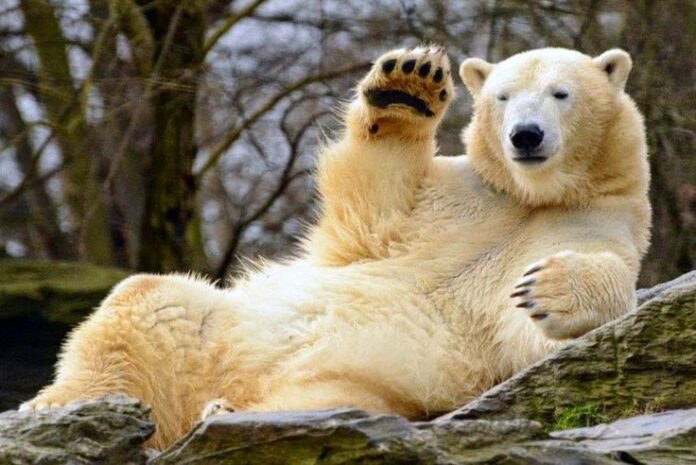ARCTIC CIRCLE — In an unprecedented move that has marine biologists scratching their heads and polar bears doing the backstroke, the International Union for Conservation of Nature (IUCN) has officially reclassified polar bears as an endangered species of fish. The decision came after a lengthy debate where experts concluded that since polar bears spend so much time swimming in Arctic waters due to melting ice caps, they might as well be considered aquatic creatures.
“Listen, we had to think outside the box here,” said Dr. Finn Scales, lead researcher at the Institute of Creative Species Classification. “Traditional conservation methods weren’t working, so we figured, hey, if it swims more than it walks, it’s basically a fish. Plus, have you seen how streamlined they are? That’s totally a fish thing.”
The reclassification has sent shockwaves through the scientific community and caused administrative chaos at wildlife management offices worldwide. The Department of Fish and Wildlife has reportedly hired 200 new employees just to update paperwork, crossing out “bear” and writing “large swimming mammalian fish” on thousands of documents.
Zoos across the globe are scrambling to comply with new housing requirements. The San Diego Zoo has already begun construction on a 20-million-gallon aquarium tank for their polar bears, complete with artificial icebergs and a wave machine. “We’re just trying to help them embrace their new identity,” said head zookeeper Maria Thompson, while watching a confused polar bear attempt to use its gills.
The polar bears themselves have shown mixed reactions to their new classification. One particularly adaptable bear, now going by the scientific name Ursus maritimus pescis, has successfully obtained a commercial fishing license and opened a small business catching seals for other bears.
“Some days are harder than others,” admitted the entrepreneurial ursine through an interpreter. “Yesterday, I spent six hours trying to convince a salmon that I was one of them. He just kept saying, ‘Nice try, Dave, but you’re clearly a bear.’ It’s really affecting my self-esteem.”
Support groups have emerged across the Arctic for bears struggling with their new aquatic identity. “Swimming with Fins: A Journey of Self-Discovery” has become particularly popular among younger bears who were already questioning their species assignment.
Fish food manufacturers have jumped on the opportunity, with industry giant AquaChow rushing to develop their new “Seal-Flavored Premium Bear-Fish Pellets” in portions large enough to satisfy a 1,500-pound apex predator. Early focus groups have reported mixed results, with most bears politely declining to eat the pellets while eyeing the researchers hungrily.
The scientific justification for the reclassification has raised eyebrows among traditional taxonomists. Dr. Scales defended the decision by pointing to a comprehensive study consisting of watching polar bears swim for five minutes and declaring, “Yep, that’s totally a fish.”
Environmental activists have quickly adapted their conservation strategies to accommodate the new classification. “Every time you avoid using a plastic straw, you’re helping these majestic fish-bears survive,” said Greenpeace spokesperson Sarah Waters. “And please, whatever you do, don’t try to catch them with a fishing rod – they tend to catch back.”
If current climate trends continue, scientists predict polar bears may need to be reclassified again as clouds by 2030, as that’s all that will be left of their Arctic habitat. When asked for comment, one polar bear simply sighed and continued practicing its gill movements in front of a mirror.
At press time, several penguins were reportedly preparing a similar petition to be reclassified as tropical fruits, arguing that they too are black and white and occasionally fall from high places.


